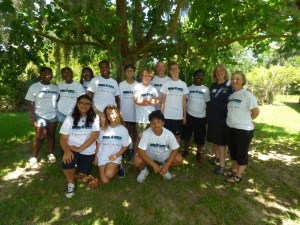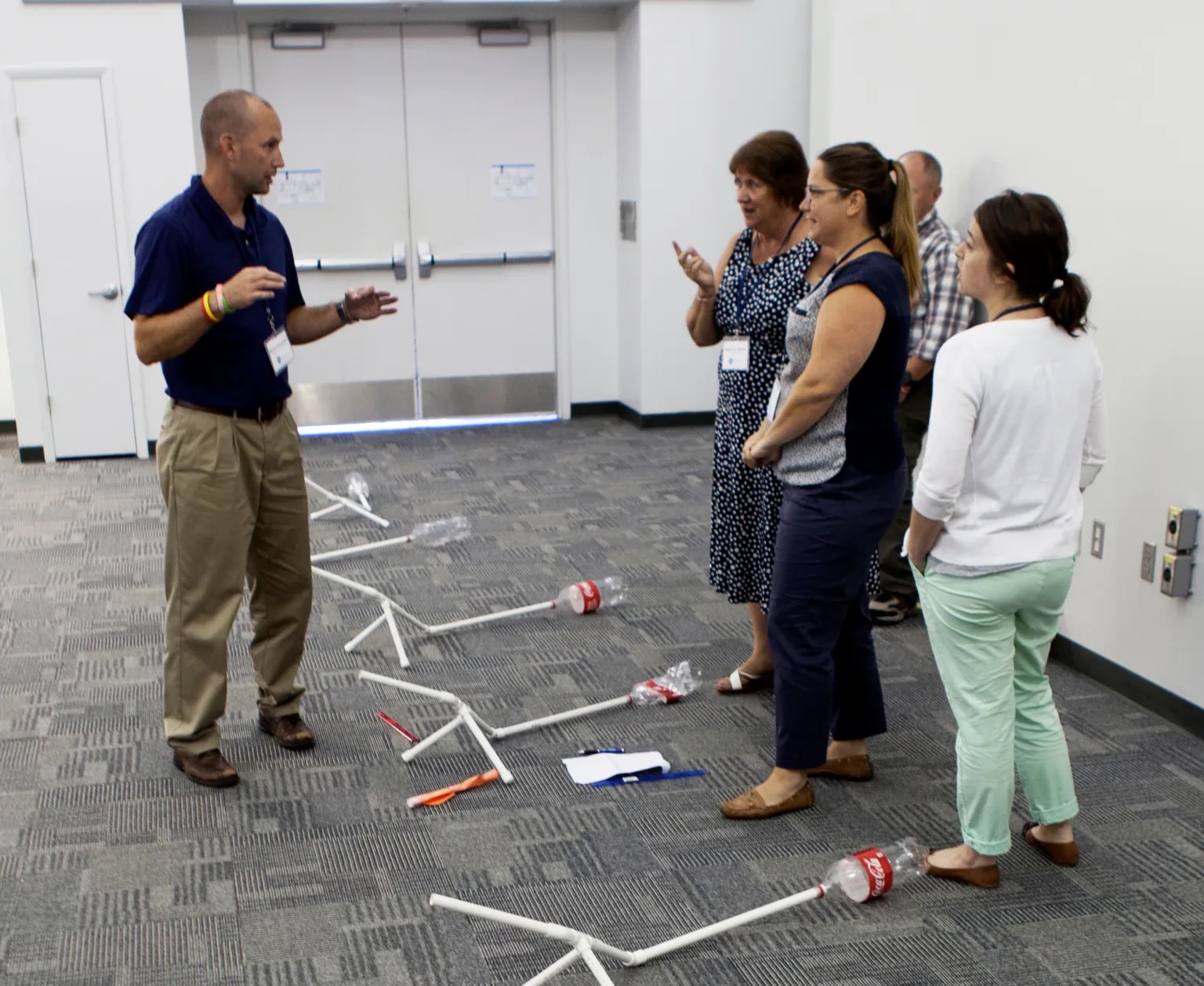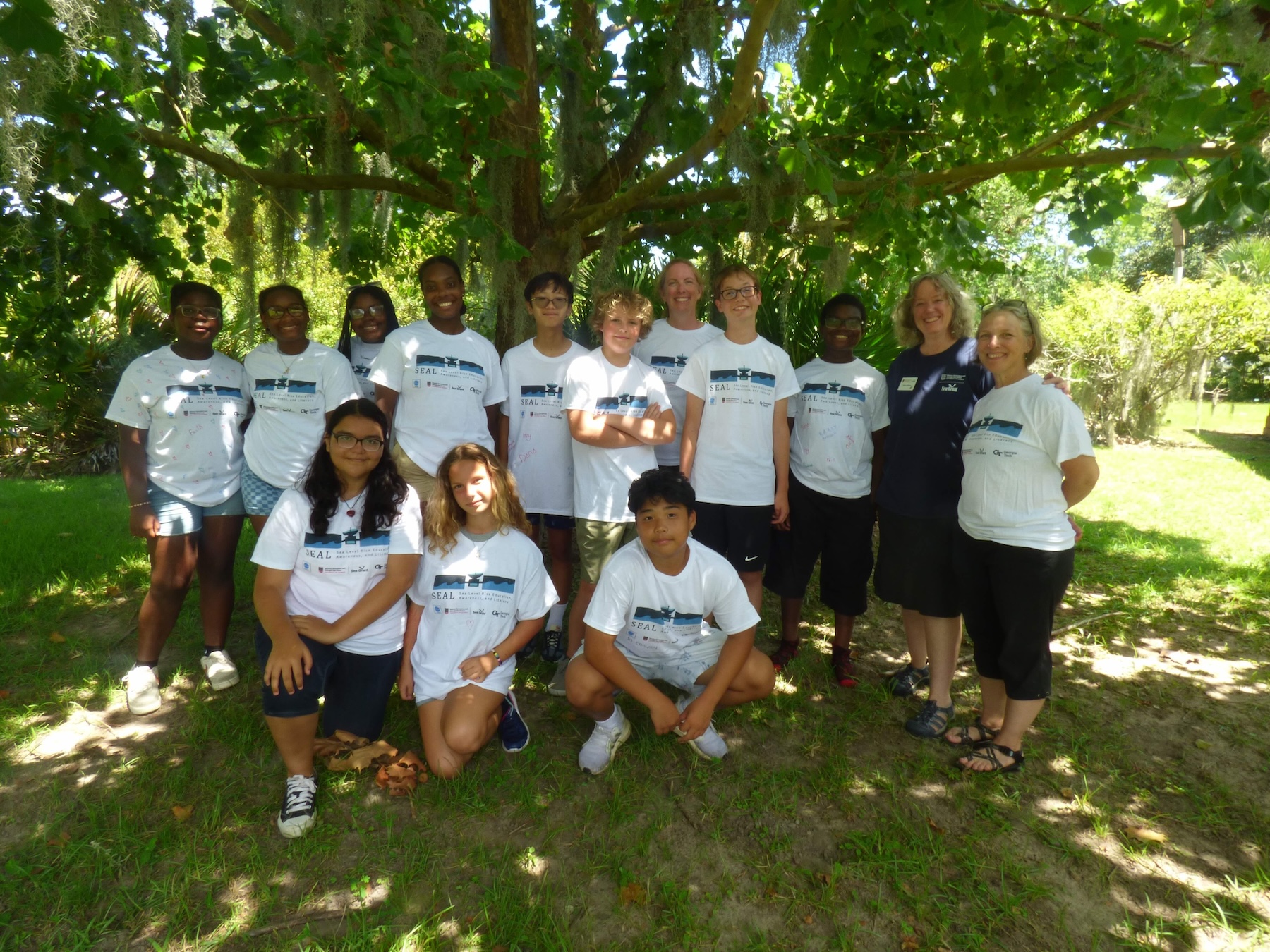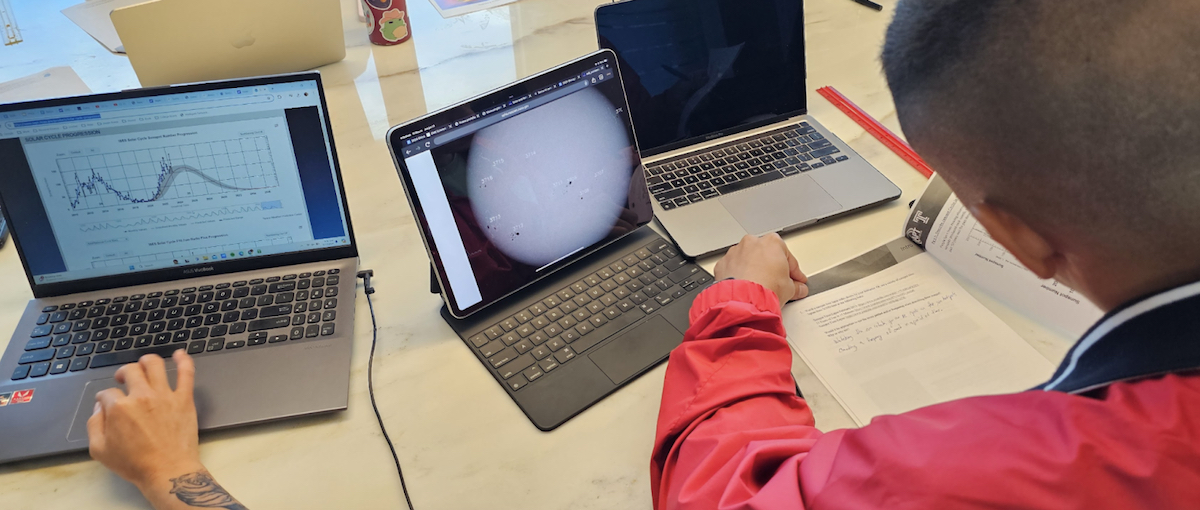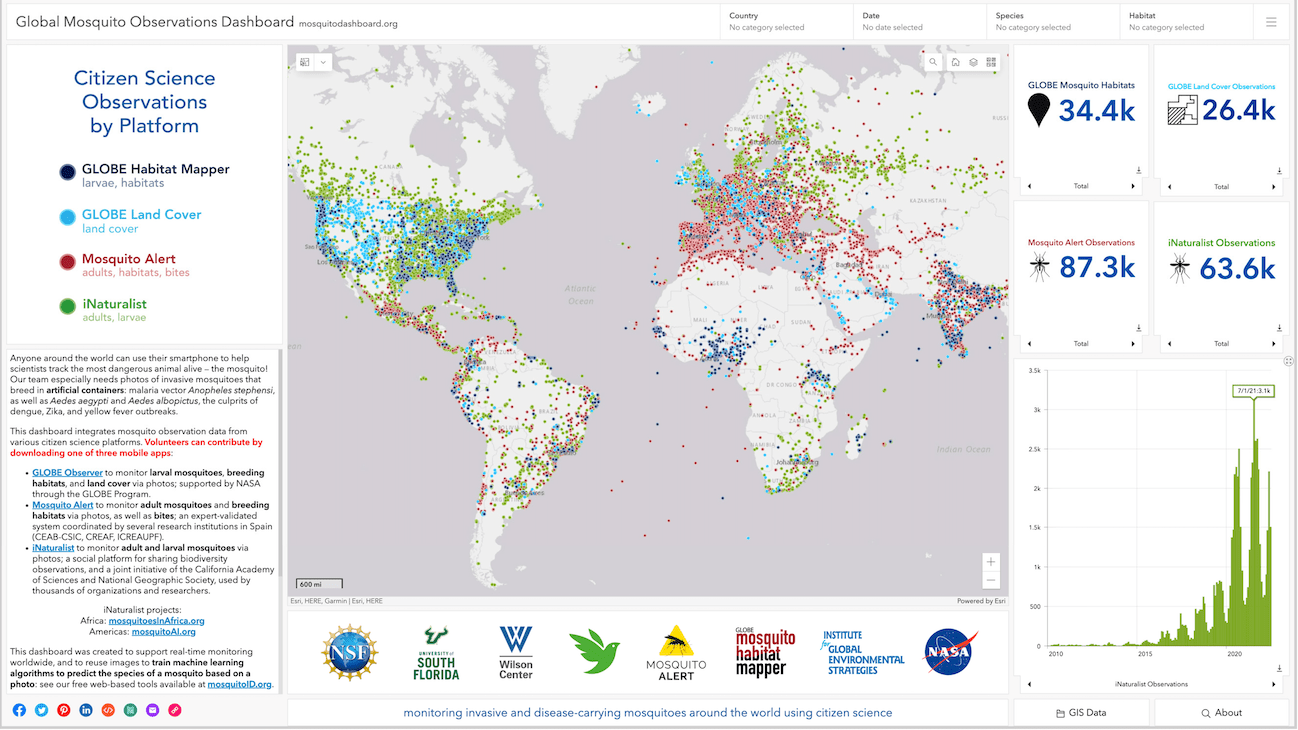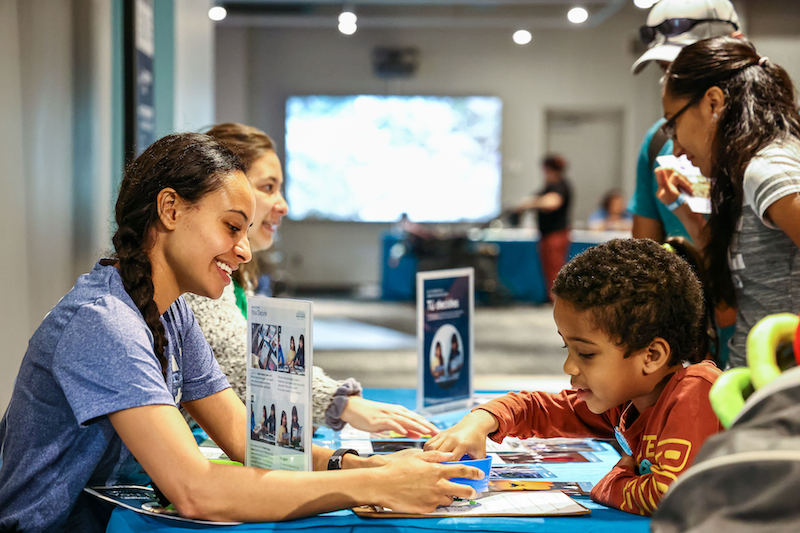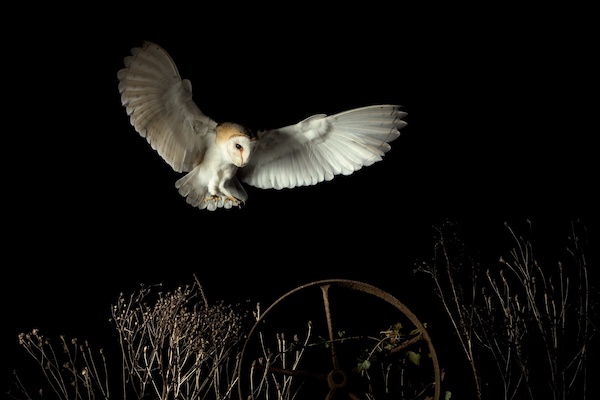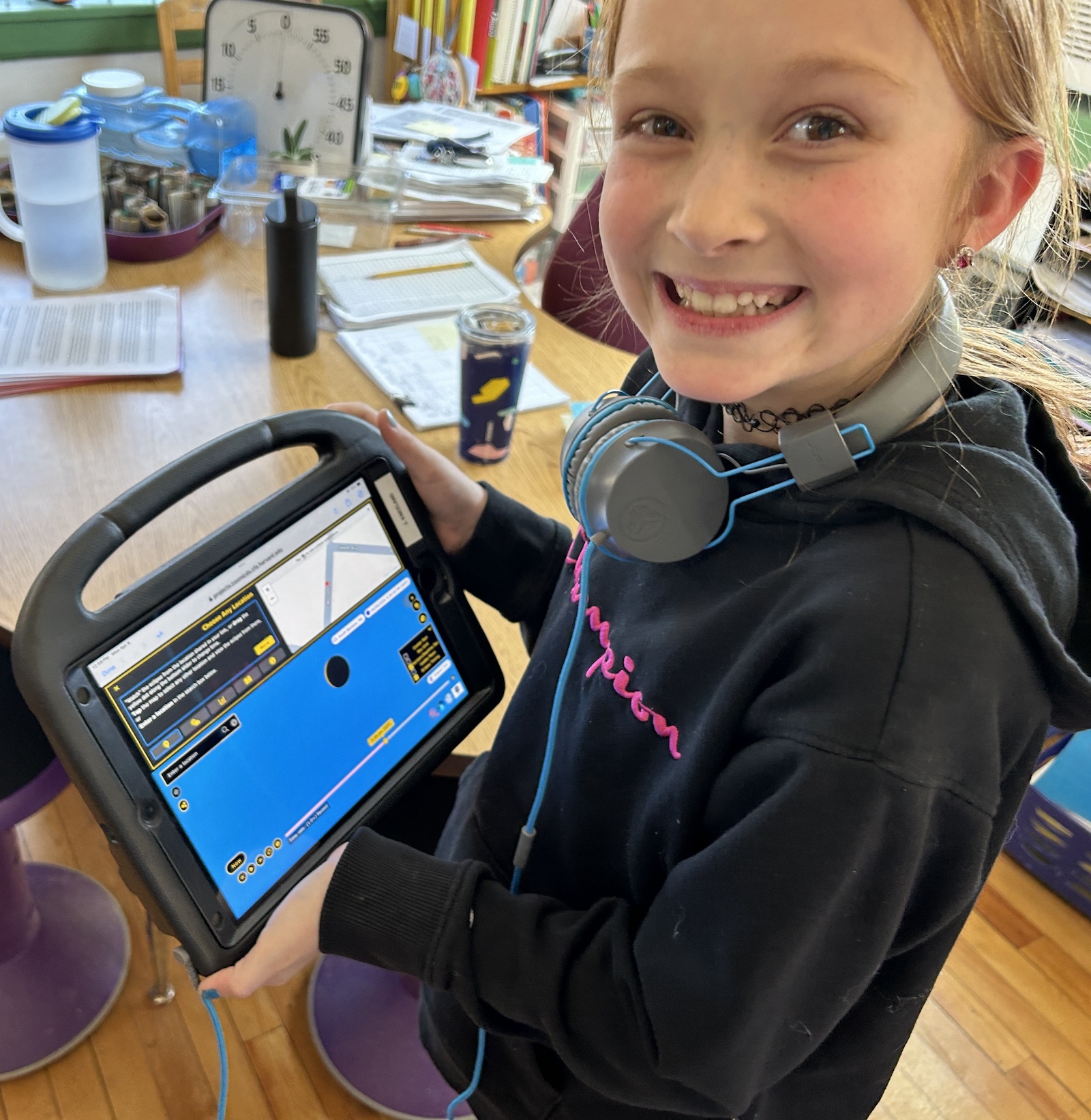The NASA Science Activation (SciAct) Program has been selected to receive the American Geophysical Union (AGU) 2024 Excellence in Earth and Space Science Education Award. This prestigious, annual award, established in 1995, honors a mid-career or senior scientist team, individual, or group that has demonstrated a sustained commitment to broad, positive impact on Earth and space science education at any education level from kindergarten through postgraduate studies. SciAct engages learners of all ages in all 50 states and 4 US territories with Earth and space science. Through an extensive network…
Read MoreTag: Science Activation
NASA Science for Your Classroom: Opportunities for Educators
Learn Overview Learning Resources Science Activation Teams SME Map Opportunities More Science Stories Science Activation Highlights Citizen Science 4 min read NASA Science for Your Classroom: Opportunities for Educators The summer season for educators can be a time of rest and rejuvenation, but it can also offer opportunities for professional learning with new colleagues beyond your own school. The following programs from NASA’s Science Activation Program offer end-of-summer/early-fall curricular resources and connections with other educators that can help you bring new science ideas and activities into your instructional practice. Celebrating…
Read MoreNASA Summer Camp Inspires Future Climate Leaders
Learn Home NASA Summer Camp Inspires… Earth Science Overview Learning Resources Science Activation Teams SME Map Opportunities More Science Stories Science Activation Highlights Citizen Science 2 min read NASA Summer Camp Inspires Future Climate Leaders From July 15-19, 2024, the Coastal Equity and Resilience Hub at the Georgia Institute of Technology collaborated with the University of Georgia (UGA) Marine Extension and Georgia Sea Grant to host a week-long NASA Sea Level Changemakers Summer Camp. The camp introduced 14 rising 7th-8th graders to how coastal areas are changing due to…
Read MoreLeveraging Teacher Leaders to Share the Joy of NASA Heliophysics
Learn Home Leveraging Teacher Leaders to… Heliophysics Overview Learning Resources Science Activation Teams SME Map Opportunities More Science Stories Science Activation Highlights Citizen Science 2 min read Leveraging Teacher Leaders to Share the Joy of NASA Heliophysics Many teachers are exceptionally skilled at bridging students’ interests with real-world science. Now for the third year, the American Association of Physics Teachers (AAPT) has brought together such a group of highly-motivated secondary and higher education teachers as part of their NASA Heliophysics Education Activation Team (HEAT) Space Physics Ambassador program. In…
Read MoreProyecto de la NASA en Puerto Rico capacita a estudiantes en biología marina
9 Min Read Proyecto de la NASA en Puerto Rico capacita a estudiantes en biología marina Una península cubierta por un bosque verde en la isla de Culebra se adentra en las aguas azules del Caribe mientras una tormenta cae a lo lejos. El azul turquesa que rodea la isla indica la presencia de aguas poco profundas, que son el hogar de los famosos arrecifes de coral de esta isla. Credits: Centro Ames de la NASA/Milan Loiacono Read this story in English here. Tainaliz Marie Rodríguez Lugo respiró hondo, se ajustó…
Read MoreNASA Earth Science Education Collaborative Member Co-Authors Award-Winning Paper in Insects
Learn Home NASA Earth Science Education… Earth Science Overview Learning Resources Science Activation Teams SME Map Opportunities More Science Stories Science Activation Highlights Citizen Science 2 min read NASA Earth Science Education Collaborative Member Co-Authors Award-Winning Paper in Insects On August 13, 2024, the publishers of the journal Insects notified authors of three papers selected to receive “Insects 2022 Best Paper Award” for research and review articles published in Insects from January 1 to December 31, 2022. One of the winning papers was co-authored by Russanne Low, PhD, Institute…
Read MoreCo-creating authentic STEM learning experiences with Latino communities
Learn Home Co-creating authentic STEM… Community Partners Overview Learning Resources Science Activation Teams SME Map Opportunities More Science Stories Science Activation Highlights Citizen Science 2 min read Co-creating authentic STEM learning experiences with Latino communities Led by Arizona State University, the NASA Science Activation Program’s “Engaging Hispanic Communities in Authentic NASA Science” project advances NASA’s vision for science, technology, engineering, and mathematics (STEM) education by co-creating learning experiences with Latino communities in six locations in California, Arizona, New Mexico, and Texas. Partners at each site – including educational organizations,…
Read MoreNASA Project in Puerto Rico Trains Students in Marine Biology
7 Min Read NASA Project in Puerto Rico Trains Students in Marine Biology A forested green peninsula of Culebra Island juts into the blue waters of the Caribbean as a rain storm hits in the distance. The teal blue surrounding the island indicates shallow waters, home to the island's famous coral reefs. Credits: NASA Ames/Milan Loiacono Tainaliz Marie Rodríguez Lugo took a deep breath, adjusted her snorkel mask, and plunged into the ocean, fins first. Three weeks earlier, Rodríguez Lugo couldn’t swim. Now the college student was gathering data on…
Read MoreEclipse Soundscapes AudioMoth Donations Will Study Nature at Night
Learn Home Eclipse Soundscapes AudioMoth… Audio Overview Learning Resources Science Activation Teams SME Map Opportunities More Science Stories Science Activation Highlights Citizen Science 3 min read Eclipse Soundscapes AudioMoth Donations Will Study Nature at Night During the April 8, 2024 total solar eclipse, approximately 770 AudioMoth recording devices were used to capture sound data as part of the Eclipse Soundscapes Project — a multisensory participatory science (also known as “citizen science”) project that is studying how eclipses impact life on Earth. Following the eclipse, participants had the option to…
Read MoreSolar Eclipse Data Story Helps the Public Visualize the April 2024 Total Eclipse
Learn Home Solar Eclipse Data Story Helps… For Educators Overview Learning Resources Science Activation Teams SME Map Opportunities More Science Stories Science Activation Highlights Citizen Science 2 min read Solar Eclipse Data Story Helps the Public Visualize the April 2024 Total Eclipse The NASA Science Activation program’s Cosmic Data Stories team, led by Harvard University in Cambridge, MA, released a new Data Story for the April 8, 2024 Total Solar Eclipse. A Data Story is an interactive, digital showcase of new science imagery, including ideas for exploration and scientific…
Read More